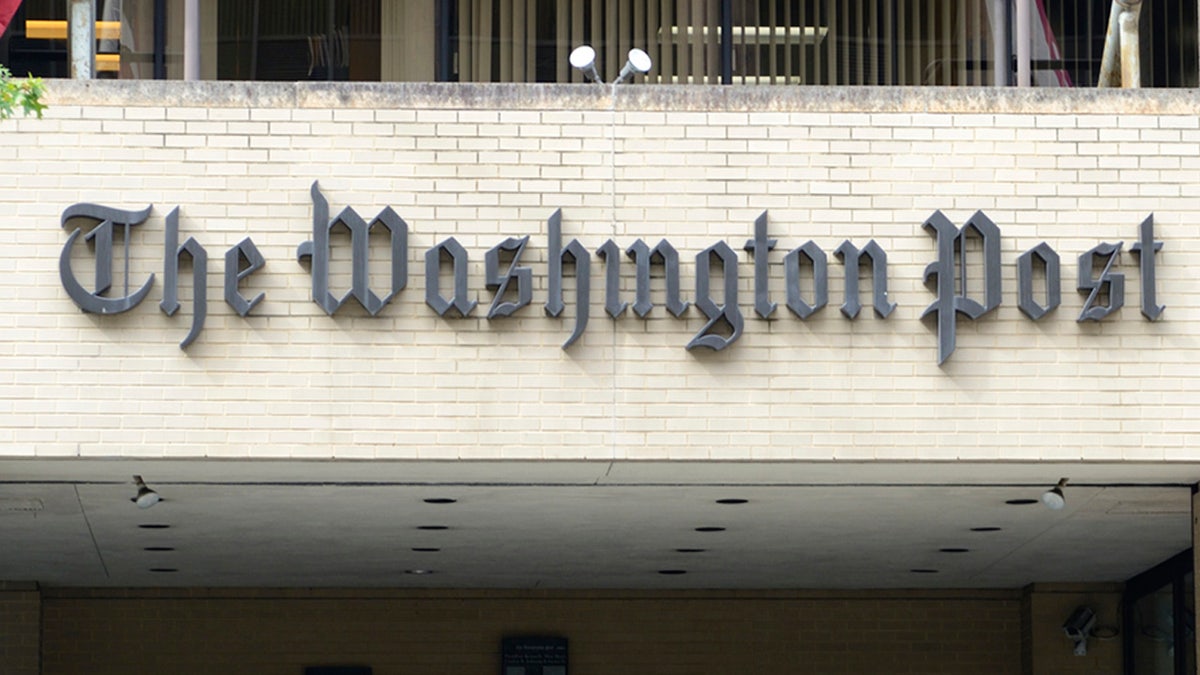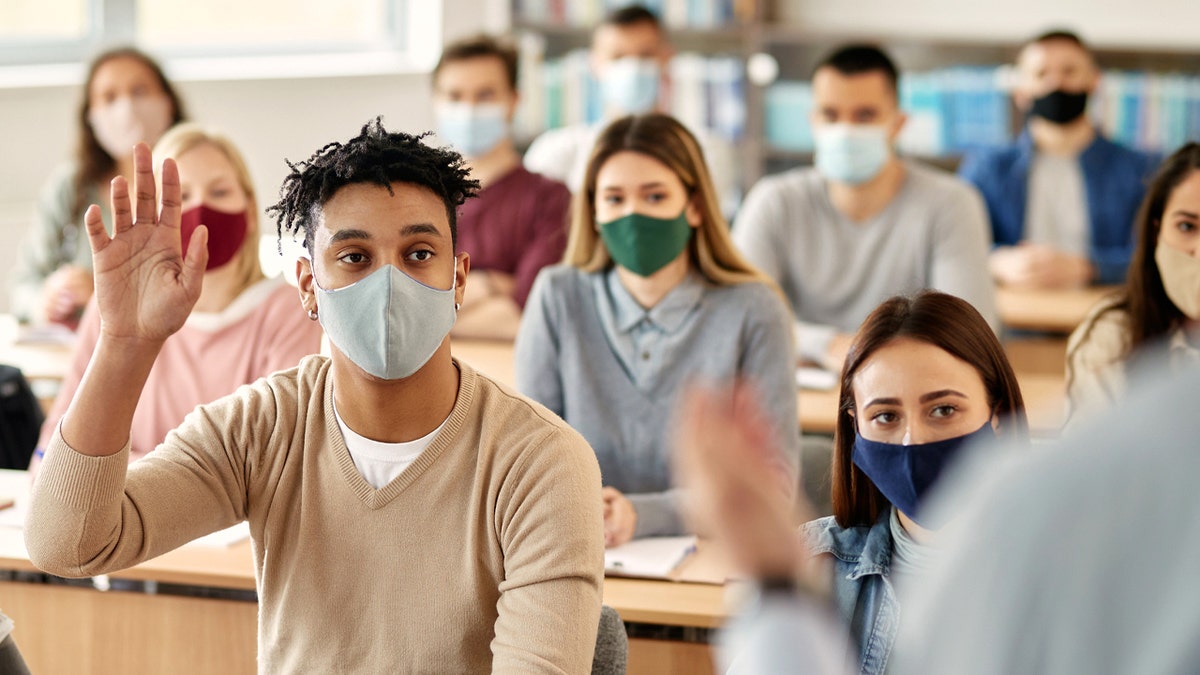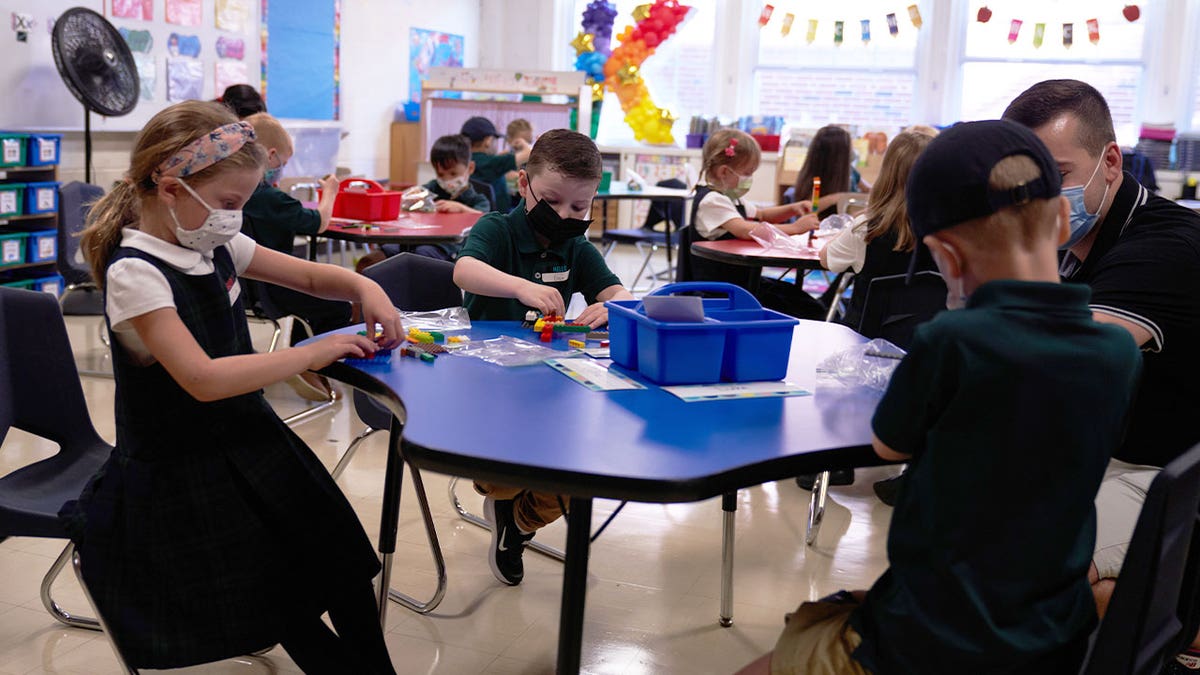Media top headlines October 20
In media news today, Jen Psaki gets slammed for offering no explanation for why Build Back Better will cost nothing, Katie Couric says she should have included Ruth Bader Ginsburg's full quote, and The Washington Post gets crushed for a piece calling on American consumers to lower expectations
The Washington Post published an opinion piece on urging schools to scrap COVID-era mask mandates by the end of the year, saying a hard deadline is needed to prevent decision makers from implementing unnecessary "indefinite masking" for kids.
Joseph G. Allen, Harvard University associate professor, penned the piece that calls on schools to do away with the polarizing practice of forcing children to wear masks.
"It’s time to set firm dates for ending masking in schools," Allen wrote. "The risk of covid-19 to kids is already very low. And with the expected arrival of vaccines for 5-to-11-year-olds in early November, schools should be able to lift their mask mandates by the end of the year at the latest."

The Washington Post published an opinion piece on urging schools to scrap mask mandates by the end of the year
Allen is also the director of the Healthy Buildings program at Harvard University’s T.H. Chan School of Public Health. He has previously supported vaccine mandates but doesn’t think that means kids should be forced to cover their faces.
"My 15-year-old and 12-year-old are already vaccinated, and my 9-year-old will get the shot on the first day it’s approved for his age. But vaccine mandates do not have to be a precondition to end masking," he wrote. "Right now, schools have to craft policies based on acceptable risks. Now that children will soon have access to vaccines, all parents will have the tools to send their kids to school with the assurance that they will be safe, even without masks."
Allen pointed to data that shows "the risk of severe outcomes from covid-19 is extremely low for kids," including that the hospitalization rate for children in New England is about seven per 10 million.
"That is not a typo," he wrote.
The Harvard associate professor explained that the CDC is meeting next month to make the final recommendation on vaccines for 5-to-11-year-olds and "health officials should be preparing now to administer these vaccines on the first day they’re allowed" because a two-dose regimen could protect children by the third week in December.

Joseph G. Allen, Harvard University associate professor, penned a piece that calls on schools to do away with the polarizing practice of forcing children to wear masks. (istock)
"In other words, there should be no mask mandates for kids in schools in the new year — or even earlier," Allen wrote. "Why do we need such a quick timeline? Because if we don’t set hard deadlines, it’s easy to see how schools could sleepwalk into indefinite masking for kids for at least this entire school year."
Allen then explained that previous concerns about students infecting high-risk teachers or parents shouldn’t be an issue any longer, as both groups have had access to the vaccine for months.
"Many of them have access to booster shots, as well, and can continue to wear a high-grade mask to protect themselves if they remain concerned," Allen wrote. "As for adults who remain unvaccinated, the delta variant will find them eventually, and, when it does, their risk of severe outcomes remains high. But kids should not have to bear the burden of reckless adults any longer than they already have."

Joseph G. Allen feels masks work, but aren’t necessary for kids. ( Allison Dinner/Bloomberg via Getty Images)
CLICK HERE TO GET THE FOX NEWS APP
He listed four things Americans should do to prioritize the health of children: Mandate vaccines, host at-school vaccination clinics for 5-to-11-year-olds in every school in the country, end "unnecessary" quarantining of kids by expanding the use of rapid antigen tests and improve ventilation and filtration in classrooms.
"This also isn’t about whether masks work. They do. But as with all control measures, there is a time and place for them. We shouldn’t extend controls beyond what’s necessary, or else we lose the public’s trust," Allen wrote. "The best thing about masks is that if things change for the worse — and they might — then we just pull the masks back out of the drawer. But we must be just as willing to put them away when things look better."





















